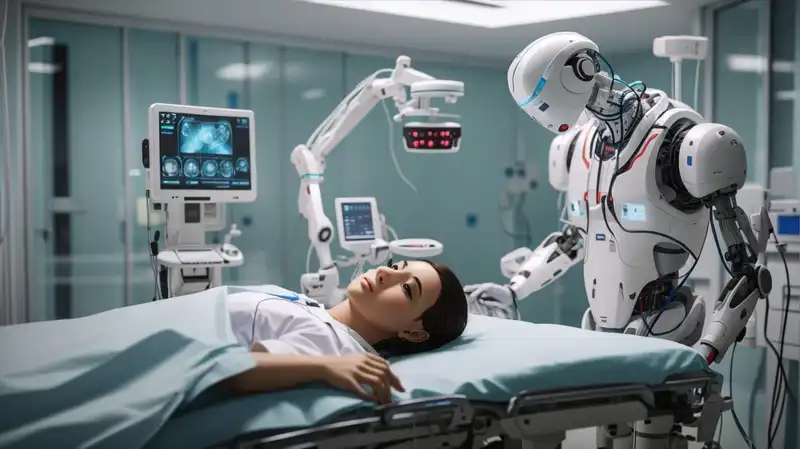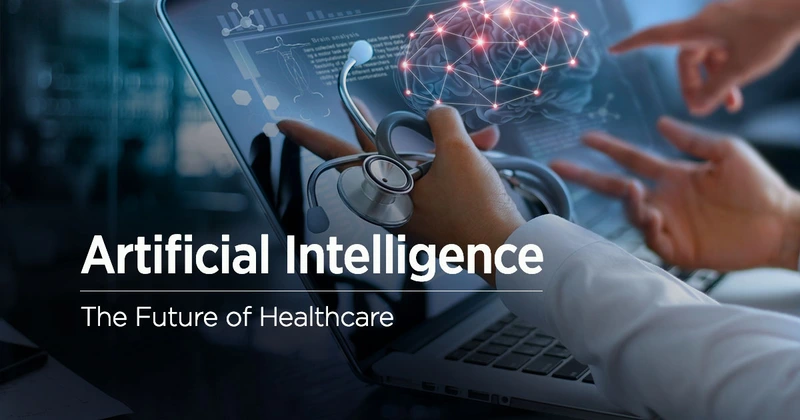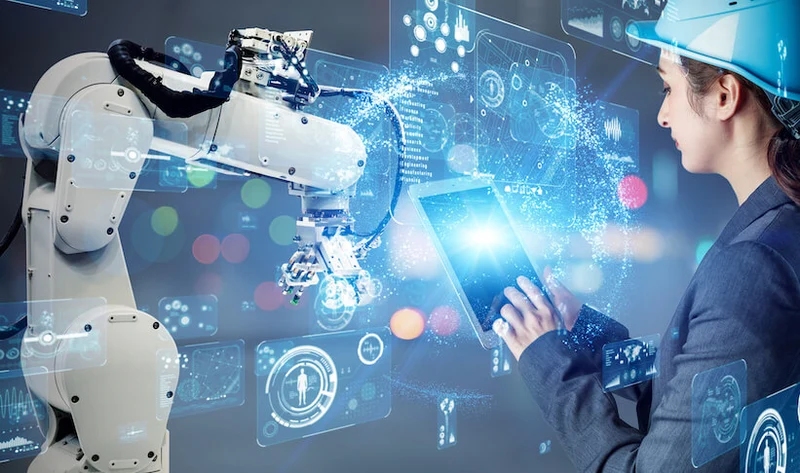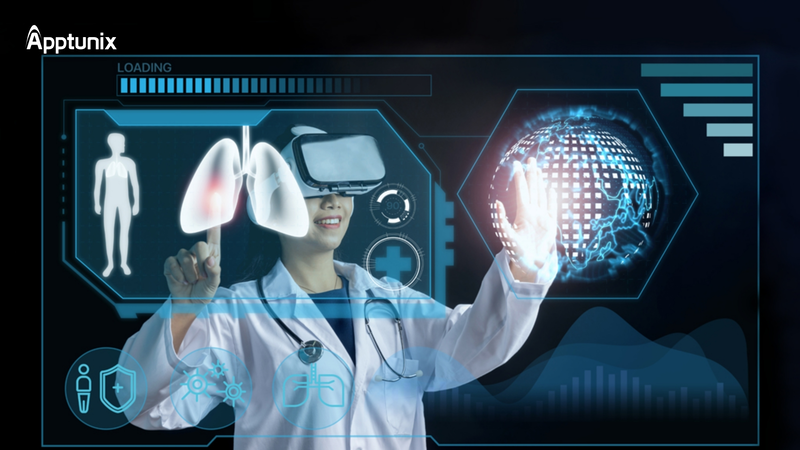Quick Overview
Artificial Intelligence (AI) is reshaping severa industries, and healthcare stands proud as one of the maximum promising fields in which AI’s effect is about to revolutionize the way we diagnose, treat, and control diseases. As we appearance to the future, AI’s role in healthcare guarantees massive advancements, offering stronger precision, efficiency, and customized care. This blog explores the improvements at the horizon in AI and healthcare, highlighting the potential blessings, challenges, and future directions of this transformative generation.
Evolution of AI in Healthcare
Historical Context
AI’s adventure in healthcare began with incredibly simple applications, inclusive of rule-based totally structures for diagnostic guide and statistics control. Early systems may want to help with simple responsibilities, consisting of sample recognition and scientific report preserving. However, the actual breakthrough came with the appearance of system gaining knowledge of (ML) and deep mastering, which enabled extra state-of-the-art and dynamic packages.
Key Developments
- Pattern Recognition: AI has improved in its ability to recognize patterns in medical images, such as X-rays and MRIs. Algorithms can now identify anomalies with a high degree of accuracy, often on par with or surpassing human radiologists.
- Predictive Analytics: AI models are increasingly used to predict patient outcomes based on historical data. This includes predicting disease progression, readmission risks, and treatment responses.
- Natural Language Processing (NLP): AI-driven NLP tools can extract and interpret data from unstructured text in medical records, enabling better data utilization and patient insights.
Cutting-Edge Innovations in AI Healthcare
As we appearance to the future, numerous modern-day innovations in AI are poised to convert . These improvements offer the capability to noticeably improve patient results, streamline processes, and enhance standard machine efficiency.
Advanced Diagnostic Tools
AI is enhancing diagnostic accuracy through advanced imaging techniques and predictive models.
- Enhanced Imaging Analysis: AI algorithms are being advanced to analyze complicated clinical photos, such as multi-modal MRI scans, with unheard of detail. Techniques which includes convolutional neural networks (CNNs) are used to hit upon subtle abnormalities that can be neglected via human eyes.
- Early Disease Detection: AI fashions are being designed to discover diseases at in advance ranges. For example, AI structures are getting used to discover early signs and symptoms of cancer, which includes micro-calcifications in mammograms or retinal adjustments in diabetic retinopathy.
Personalized Medicine
AI is playing a crucial role in the development of personalized medicine, where treatments and interventions are tailored to individual patient profiles.
- Genomic Medicine: AI is used to analyze genetic data and identify mutations or genetic predispositions to diseases. This information helps in personalizing treatment plans and predicting potential health risks.
- Tailored Treatments: AI models can integrate data from various sources, such as patient history, lifestyle, and genetics, to recommend individualized treatment plans. This approach enhances the effectiveness of treatments and reduces adverse effects.
AI-Driven Drug Discovery
The drug discovery process is being accelerated by AI, which has the potential to bring new treatments to market faster and more efficiently.
- Compound Screening: AI algorithms can analyze vast chemical libraries to identify potential drug candidates. This speeds up the screening process and increases the likelihood of discovering effective compounds.
- Predictive Modeling: AI is used to predict the efficacy and safety of new drugs before clinical trials. This reduces the risk of failure in later stages and streamlines the development process.
Virtual Health Assistants
AI-powered virtual health assistants are transforming patient care and management.
- Chatbots and Virtual Assistants: AI chatbots are supplying sufferers with actual-time information, answering questions on symptoms, medications, and appointment scheduling. These assistants help reduce the load on healthcare carriers and improve affected person engagement.
- Telemedicine Integration: AI is enhancing telemedicine systems via offering computerized triage and diagnostic assist at some stage in virtual consultations. This guarantees that sufferers get hold of timely and correct care, even remotely.

Challenges and Considerations
While the potential benefits of AI are substantial, several challenges and considerations must be addressed to fully realize its potential.
Data Privacy and Security
The use of AI in healthcare involves the collection and analysis of sensitive patient data, raising concerns about privacy and security.
- Data Protection: Ensuring that patient data is securely stored and transmitted is crucial. Implementing robust encryption and access control measures helps protect against unauthorized access and breaches.
- Regulatory Compliance: Adhering to regulations such as the Insurance Portability and Accountability Act (HIPAA) in the U.S. or the General Data Protection Regulation (GDPR) in Europe is essential for maintaining patient trust and compliance.
Algorithmic Bias and Fairness
AI algorithms can inadvertently perpetuate biases present in the training data, leading to disparities in delivery.
- Bias Detection: It is important to identify and mitigate biases in AI models to ensure equitable care. This includes diversifying training data and evaluating model performance across different demographic groups.
- Transparency and Accountability: Developing transparent AI systems that provide explanations for their decisions helps build trust and accountability. This is particularly important in healthcare, where decisions can have significant impacts on patient outcomes.
Integration with Existing Systems
Integrating AI technologies with existing healthcare systems can be complex and challenging.
- Interoperability: Ensuring that AI systems can seamlessly integrate with electronic health records (EHRs) and other healthcare technologies is crucial for maximizing their effectiveness.
- Workflow Integration: AI solutions must be designed to fit into existing clinical workflows without disrupting the care process. This requires collaboration between technologists and healthcare providers to ensure smooth implementation.
Future Directions and Opportunities
The future of AI in healthcare holds exciting possibilities and opportunities for further innovation.
AI-Powered Predictive Analytics
Future developments in AI will enable even more advanced predictive analytics, providing deeper insights into patient health and disease progression.
- Population Health Management: AI models will be used to analyze large datasets from diverse populations, identifying trends and risk factors that can inform public health initiatives and preventive measures.
- Real-Time Monitoring: AI will facilitate real-time monitoring of patient health through wearable devices and remote sensors, enabling proactive interventions and personalized care.

Enhanced Human-AI Collaboration
The future of healthcare will involve enhanced collaboration between human practitioners and AI systems.
- Augmented Decision-Making: AI will support healthcare professionals by providing evidence-based recommendations and insights, enhancing their decision-making capabilities and reducing cognitive load.
- Training and Education: AI will be used to develop advanced training programs for healthcare professionals, simulating complex clinical scenarios and providing personalized learning experiences.
Advancements in AI-Driven Robotics
AI-driven robotics will play an increasingly important role in healthcare, from surgery to rehabilitation.
- Robotic Surgery: AI-powered surgical robots will provide greater precision and control during complex procedures, improving outcomes and reducing recovery times.
- Rehabilitation and Assistive Robotics: AI-driven rehabilitation robots will support patients in their recovery process, providing personalized therapy and assistance with daily activities.

AI is poised to revolutionize healthcare, offering revolutionary answers that enhance analysis, remedy, and affected person management. From superior diagnostic equipment and customized medicine to drug discovery and digital health assistants, AI is riding significant improvements inside the field.
While there are demanding situations to address, such as records privateness, algorithmic bias, and integration with present structures, the potential advantages of AI in healthcare are big. As generation keeps to evolve, the future of healthcare promises to be more specific, green, and personalised, in the long run improving affected person outcomes and transforming the manner we approach hospital therapy.
By embracing the possibilities provided through AI and addressing the related challenges, healthcare experts, researchers, and policymakers can paintings together to shape a future in which AI performs a valuable position in advancing human fitness and properly-being. The horizon is shiny, and the journey of AI in healthcare is just starting, with the capacity to obtain amazing breakthroughs and deliver transformative effect throughout the globe.
For more blogs on new latest mobile Technology visit TECHMOBUZZ or check us on Facebook.


